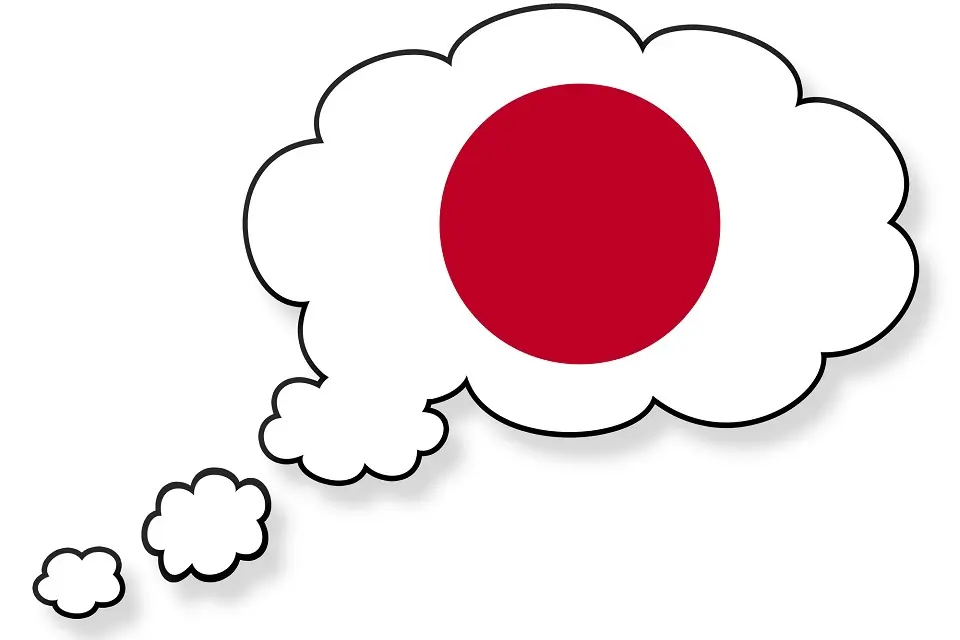Useful Common Japanese Phrases and Words

Knowing the basic Japanese phrases commonly used in daily communication is extremely helpful if you plan to stay in Japan. These phrases will be handy even if you visit Japan, especially for business.
Most of these common Japanese phrases for day-to-day conversation are not just for communication but reflect the deep-rooted cultural values of Japanese society. Therefore, learning and using these phrases will create a very positive impression while interacting with Japanese people. It will reflect your understanding of the country, its culture, and your interest in integrating with society.
Even if you do not speak Japanese, mastering these basic conversational Japanese phrases will positively impact communication with Japanese people and will be very handy when interacting with them.
We have grouped such various phrases based on different situations in the article and
Basic Japanese Phrases for Day-to-Day Conversation


Introductory Phrases
- Onamae wa nan desu ka? (おなまえはなんですか): This translates to “What is your name?”.
- Watashi no namae wa……… desu (わたしのなまえは………です): To answer the previous question, fill in the blank with your name, signaling “My name is…..”.
- O’genki desu ka? (おげんきですか): While this translates into “Are you well?” “or “O’genki desu ka?” is a very common phrase to ask “How are you?”. Please note that the addition of the “O” prefix with the word “Genki” makes it more formal and honorific. In casual situations, you can just say, “Genki desu ka?” The most casual form of this phrase is simply asking, “Genki…?” However, you should only use this casual form with family and very close friends or with kids.
- Genki desu (げんきです): The reply to the above question would be this phrase, meaning “I’m fine” or “I’m well, thank you.” Please note that in the case of the answering phrase “Genki desu“, the prefix “O” is not used because we are talking about us and not the person in front.
Other Day-to-Day Communication Phrases
- Sou desu ne (そうですね): This phrase is to show your agreement with what somebody is telling you. However, saying “Sou desu ne” or its casual form, “Sou dane” serves another indirect and deeper purpose to indicate that you are attentive to the other person and listening carefully.
- Sou desu ka? (そうですか): While the translation of this phrase is “Really?” or “Is that the case?”, it is a very common expression used in various contexts. However, in many cases, saying “Sou desu ka?” shows your interest in what the other person is saying, as an acknowledgment that what you heard was informative. However, if you wish to show surprise, you can use the phrase “Sou nan desu ka?” (そうなんですか?)
- Hai (はい): This is the Japanese term for “yes.”
- Iie (いいえ): This translates to “no.” Please note that saying a direct “no” is impolite in Japanese culture. Therefore
- Arigatou gozaimasu (ありがとうございます): This phrase means “Thank you” and is the standard way to express gratitude. You can use the casual form with family and friends by just saying “Arigatou.”
- Dou itashimashite (どういたしまして): This can be used when someone thanks you, indicating “You’re welcome.”
Useful Japanese Phrases for Humbleness and to Request Help


Japanese society gives utmost importance to modesty. Moreover, requesting help often conveys humbleness even when you do not really need help per se.
Following are some common but very useful Japanese phrases to convey modesty and/or to request help either merely to show humbleness or sometimes to request actual help.
Yoroshiku onegaishimasu
“Yoroshiku onegaishimasu (よろしくお願いします)” is a very commonly used but extremely useful Japanese phrase. This phrase has very deep roots in Japanese culture. It is no exaggeration to say that knowing and learning to use this phrase is necessary.
Meaning of “Yoroshiku Onegaishimasu”
There is no equivalent phrase or greeting of “Yoroshiku onegaishimasu” in most languages besides Hindi. This is because of the cultural differences explained below.
Though some people consider it as “Nice to meet you,” what this beautiful phrase “indirectly” conveys is “Please look favorably upon me/this” or “Keep your blessings on me.” You may wonder about the adjective “indirectly“, so well the explanation is as follows:
The real meaning of “Yoroshiku onegaishimasu” in Japanese is a “request for acceptance.” So, the phrase “Yoroshiku onegaishimasu” is not a complete sentence but a phrase conveying a “request for acceptance” in different contexts when used with other words in sentences. However, standalone, this phrase conveys, “Please accept (me, my request, or something you are offering) and keep your blessings with me.”
Context and Origin of “Yoroshiku Ongaishimasu”
Context
As mentioned above, the phrase “Yoroshiku onegaishimasu“, does not have an equivalent in non-Asian and even many Asian languages.
This is because, unlike Western cultures, which place more importance on individuality and equality, Japanese culture, along with other Asian cultures, places significant emphasis on the intricacies of social hierarchy and respect. To convey this respect, the speakers put themselves in the lower position and the person in front in the higher position.
An example of putting oneself in a lower position than the person in front is the words “Agemasu” and “Kuremasu” for “giving” and “receiving” something.
Agemasu (giving) conveys that the person giving or offering something to another is in a lower position. Imagine extending your hand upwards to hand something to someone in a higher position to respect. The opposite of this is Kuremasu (receiving). Picture someone from a higher position reaching down to give you something.
For a better explanation, the above concept applies to the phrase “yoroshiku onegaishimasu,” by which the speaker requests the other person to keep the blessings with them.
Once foreigners spend time in Japan, especially in business or formal settings, they easily realize the importance and the power of “Yoroshiku onegaishimasu.” It’s crucial to know about this phrase that can act as a foundation stone in building new relationships and, at times, work as cement in cementing weakening relationships even before coming to Japan.
Origin
As evident, the phrase “Yoroshiku onegaishimasu” is comprised of two words, “yoroshiku (よろしく)’ and “Onegaishimasu (お願いします)”.
The word “Yoroshiku (よろしく)” originates from “Yoroshii (よろしい).”
If you search on the internet or use “Google translate,” you will find that the meaning of “Yoroshii (よろしい)” is “Ok”. However, if we dive deeper, the meaning of the “OK” that the word “Yorosii” conveys is slightly deeper meaning than the “OK” of English.
The real meaning of “Yoroshii” is “accept,” as in “Do you accept (my request)” or “I accept (it).” So, on the macro level, the meaning is equivalent to “OK,” but in a real sense, it is about requesting someone for acceptance or telling someone that you “it’s okay and I accept.”
Coming from “Yoroshii“ the form “Yoroshiku” means “Please accept (my request).
“Onegaishimasu” means “Please” in a very polite and honorific way.
The combination of these two words conveys a request for acceptance. Please do not get confused about the “please” appearing twice. You can consider it as a way to be very polite.
Usage of “Yoroshiku Onegaishimasu”
- Introduction or First Meeting: At the end of self-introductions or meeting someone for the first time, it carries a sense of “Nice to meet you” or “Please treat me favorably.”
- Making a Request: If you’re asking someone to do something for you, it becomes a polite “Please take care of it” or “Thank you in advance.”
- Closing a Message or Email: When concluding a message, especially in a business context, it conveys a sense of “Thank you for your attention to this matter” or “I trust this to you”.
- After Sharing an Opinion or Plan: It can mean “I hope you understand” or “Please consider my perspective.”
How to Use It?
Please note that “Yoroshiku Onegaishimasu” is a combination of a “sincere request” and “Hope.” Considering this, we use this expression with a bow. Please note that if you use this phrase while standing, a bow of 15% to 45%, depending on the situation and seniority of the person in front of you, is good. A bowing gesture by the neck at 90% will make this expression more effective if you are sitting.
(Note: Please read this article about bowing in Japan to learn about bowing etiquette in different situations.)
“O-sewa ni Narimasu” and “O-sewa ni Natte Orimasu”
“Osewa ni narimasu (お世話になります)” is another culturally rich and contextually significant phrase in Japanese. Let’s break it down:
“Osewa ni narimasu” or more formally “Osawa ni natte orimasu (おせわになっております)”, literally translates to “I will be in your care” or “I am in your debt.” But in practice, it often conveys gratitude for someone’s assistance, support, or patronage.
Origin and Context of Osewa ni Narimasu
The construction of the phrase “osewa ni narimasu” is from “sewa (世話),” which means “care” or “assistance.” Adding “O” to “Sewa” makes it more polite and honorific. The “narimasu (なります)” is the “masu” form of the verb “naru” and means “to become.”
It is interesting to note that the Japanese word “Sewa” and the Sanskrit word “Sewa” have the same context, i.e., “help” or “assistance,” but this word’s meaning is opposite in Japanese and Sanskrit.
In Japanese, the word “sewa” is about the other person helping or assisting us. However, in Sanskrit, “sewa” means ‘selfless service’ or giving without any expectations of receiving.
You may wonder about the above explanation as it makes this word seem to have the same meaning in Japanese, Sanskrit, or Hindi. Well, the meanings are opposite because “Sewa” in Japanese is help from a person we consider above us. In Sanskrit, “sewa
“Osewa ni natte orimasu” carries the sense of becoming someone’s responsibility or being under their care when put together. In Japanese culture, relationships, whether they are personal or official, are built on mutual respect, trust, and the acknowledgment of favors or services received.
Please note that the meaning of “Orimasu” is to be or “to exist (Existance). Adding “Orimasu” to this Japanese phrase makes it more polite.
Usage of Osewa ni Natte Orimasu
The phrases “Osewa ni narimasu” or “Osawa ni natte orimasu“ are frequently used in business settings when someone provides you with assistance. People use these phrases to show appreciation for their ongoing support while entering a new working relationship or even after business meetings.
Moreover, you will see that Japanese people use “Osewa ni natte orimasu” in the beginning of each of their official emails to their customers and business partners.
On a personal level, you can use it when someone has been looking after you or when you’re expressing gratitude for a favor they’ve done or will be doing for you. It’s a phrase that, while simple, carries a profound weight in expressing gratitude and acknowledging dependency or indebtedness in a relationship.
Further Explanation
- ‘Osewa‘ (お世話): Derived from the verb “sewa o suru (世話をする),” which means “to take care of” or “to look after.” The “o” (お) is an honorific prefix to show respect.
- ‘ni‘ (に): A particle used to indicate the direction of an action.
- ‘natte‘ (なって): The te-form of the verb “naru‘ (なる)”, which means “to become” or “to be.”
- ‘orimasu‘ (おります): A humble form of the verb “iru” (いる), which means “to be” or “to exist.”
Given the many layers of politeness in the Japanese language, understanding the cultural nuance and context behind phrases like “osewa ni narimasu” can provide a deeper appreciation for the intricacies of Japanese communication.
Ojikan itadakemasu ka?
“Ojikan itadakemasu ka” (お時間いただけますか) means “Can I have a moment?”
If you plan to apologize, ask for help, or clarify something, use this phrase beforehand to indicate politely that you’ll require some of their time. For colleagues, the more casual “chotto ii desu ka” will suffice.
Tetsudatte moraimasu ka?
“Tetsudatte moraimasu ka? (手伝ってもらいますか?)” means, “Can you please help me?”
If you need help with something, be it a project task or simply having someone hold something heavy, this versatile phrase covers it all! If the task is not a big deal, add “chotto,” meaning “small/little,” to further express this.
Tasukete Kudasai!
“Tasukete” (助けて) is a straightforward yet essential phrase to know, especially in emergencies or when asking for a favor. The meaning of “Tasukete.” or in the polite form, “Tasukete Kudasai” means asking for help or saying “Please help.”
Origin of Tasukete Kudasai
The verb “Tasukeru” (助ける) means “to help” or “to rescue.” The imperative form of the verb, which is a command or urgent request, is “tasukete.”
Here, the “te” (て) form functions as an imperative, making the statement a call to action.
Usage of Tasukete Kudasai
- Emergencies: Like the English exclamation “Help!”, “tasukete” is often used in emergencies to attract attention and request assistance.
- Casual Settings: In less dire and more casual settings, you can use it humorously or lightly when asking for assistance. For instance, if one is playfully struggling with a task or needs a friend’s intervention in a casual setting, they might say “tasukete” in a playful tone.
However, context and tone are crucial. If shouted or expressed in a distressed manner, “tasukete” is understood to be a genuine call for immediate help. Given its potential urgency, this phrase is important for anyone traveling to or residing in Japan to recognize, even if they don’t speak the language fluently.
It reflects the broader linguistic phenomenon wherein many languages have concise, easily recognizable terms for immediate assistance due to the universal human need to call for help in emergencies quickly.
Useful Phrases for Apologies in Japan


Conveying gratitude and apologies are very important in the Japanese culture and, hence, in day-to-day Japanese communication. Depending on the situation’s context and severity, various Japanese phrases and words exist to apologize. Following are the crucial Japanese phrases that you will find very useful for your life in Japan:
Sumimasen and “Sumimasen Deshita”
“Sumimasen (すみません)” and “Sumimasen deshita (すみませんでした)” are both common and important expressions in Japanese. These expressions are unique to Japan in many ways because they convey two feelings simultaneously. Let’s see what and how:
Meaning of Sumimasen:
“Sumimasen” means “Excuse me” or a combination of “I’m sorry” and “Thank you,” depending on the situation.
Every culture and language has specific words and expressions to apologize and other phrases to show gratitude. For example, “sorry” or “excuse me” for apologies and “thank you” in English. However, though you can use the expression “sumimasen” in certain situations as the English expression of “excuse me,” it carries sincere humbleness to convey a combination of apology “and” gratitude.
Origin and Context:
Sumimasen’s origin is the verb “sumu (済む)”, which means “to finish” or “to complete.” The negative form “Sumimasen” implies something that’s not finished or cleared. Therefore, it suggests an indebtedness or a lingering obligation. Saying Sumimasen conveys the humbleness of conveying that apology while thanking (gratitude) the other person for their understanding.
Usage of Sumimasen:
- Apology: If you bump into someone or make a small mistake, saying “sumimasen” conveys your apology.
- Getting Attention: If you’re trying to navigate through a crowd or get a waiter’s attention in a restaurant, “sumimasen” works as an “excuse me.”
- Gratitude: In some cases, especially when someone goes out of their way for you or acknowledges an act of kindness, we can say “sumimasen” to convey “thanks.” This usage stems from the idea of being in someone’s debt for their kindness.
Sumimasen Deshita:
“Deshita (でした)” is the past tense of “desu.” By attaching it to “sumimasen“, the phrase takes on a past tense meaning. “Sumimasen deshita” means “I am sorry” or “I apologize” for a past action.
Usage of Smuimasen Deshita:
If you’re apologizing for something that happened in the past, even if it’s just a few minutes or hours ago, “sumimasen deshita” acknowledges that the error or inconvenience occurred previously.
Both expressions are essential in everyday Japanese interactions. The ability to apologize gracefully and acknowledge inconveniences or mistakes is a valuable social skill in Japanese culture. Hence, “Sumimasen” and “Sumimasen deshita” are crucial for indicating that you have acknowledged causing even the slightest inconvenience to others and thanking them for gracefully tolerating it.
Note: In daily verbal communication, Japanese people tend to pronounce “sumimasen” as “suimasen“. Please note that this change in pronunciation is to ease the tongue-twisting. Essentially, both words, i.e., “sumimasen” and “suimasen” are the same.
Gomenasai
“Gomenasai” means “Sorry” or “I’m sorry.” Unlike many cultures where you apologize for a serious mistake or for causing a significant inconvenience to others, in Japan, people use “Gomenasai” even for causing minor inconvenience to others.
Foreigners who are new to Japan sometimes get confused about using “Sumimasen” and “Gomenasai.” The important difference is that “Sumimasen” conveys, “Thank you for the trouble you faced,” while “Gomenasi” means an apology.
Origin and Context of Gomenasai:
The word “gomen” (ごめん) comes from an older term “komen” (辜免), where “ko” (辜) means “fault” or “sin” and “men” (免) means “to excuse” or “to forgive.” Over time, the phrase evolved into a common way to apologize. “Gomenasai” is more formal and sincere than just “gomen.”
Gomensai reflects Japan’s emphasis on expressing remorse and seeking forgiveness when one has caused inconvenience or harm to others.
There are varying levels of apologies in the Japanese language, and “gomenasai” sits somewhere in the middle – it’s more sincere than “gomen” but less formal than “moushiwake gozaimasen“.
Moushiwake Gozaimasen
“Moushiwake Gozaimasen” means “I deeply apologize” or “I’m very sorry.” Unlike “gomenasai,” “Moushiwake Gozaimasen” is an Honorific form (敬語 – Keigo) of apologizing.
Origin and Context of the Phrase “Moushiwake Gozaimasen”
- Moushiwake (申し訳): This term “literally” translates to “have an excuse”. The “申し” (moushi) part comes from “申す” (mousu), a humble form of the verb for “to say,” while “訳” (wake) means “reason” or “excuse.” Together, they convey the notion of presenting an excuse or reason.
- Gozaimasen (ございません): A polite negative form. It intensifies the level of the apology by adding formality and depth.
Usage of Moushiwake Gozaimasen
- Formal Apology: “Moushiwake gozaimasen” is one of the most formal ways to apologize in Japanese. People use it when they need to deeply apologize, often in business settings, service industries, or public apologies.
- Acknowledging Mistakes or Oversights: This expression also conveys sincere regret for causing an inconvenience because of a mistake or an oversight.
- Apologizing for a Very Serious Mistake: “Moushiwake gozaimasen” is also used to convey deep regrets for very serious mistakes, like saying, “I am extremely sorry.”
- Preceding Explanation: You can also use “moushiwake gozaimasen” before explaining a situation, especially if the upcoming news might be undesirable or disappointing. For example, “Moushiwake gozaimasen ga, but the item you ordered is out of stock.”
The other forms of “Moushiwake gozaimasen” are as follows:
Moushiwake Nai
“Moushiwake nai” is a formal way of apologizing, but it is less formal than saying “Moushiwake gozaimasen.” You can use “moushiwake nai” in formal and business settings while apologizing to peers. While talking to superiors, it is safer to use the more formal “moushiwake gozaimasen.
Moushiwake Arimasen
The phrase “moushiwake arimasen” falls between the more formal “moushiwake gozaimasen” and lesser formal “moushiwake nai.” There is no thumb rule for using “moushiwake arimasesen“; however, you may use it with people who are slightly senior. As a piece of advice, when in doubt, it is always safer to use the more formal phrase.
“Moushiwake Gozaimasent Deshita” and “Moushiwake Arimasendeshita”
It is evident that both “Moushiwake gozaimasendeshita” and “moushiwake arimasendeshita” are the past tense forms of “moushiwake gozaimasen” and “moushiwake arimasen.” Let’s discuss the usage of “moushiwake gozaimasendeshita,” because, as mentioned above, when it comes to ärimasen” form and “gozaimasen” form, it is always safer to use the “gozaimasen” form.
“Moshiwake gozaimasendeshita” is a very polite phrase to apologize, and you can use it in two following situations:
- The mistake you made was a bit into the past
- The mistake was of a very serious nature
In the gradient of apologies in Japanese – from casual to formal – “Moushiwake gozaimasen” stands near the top in terms of formality and sincerity, while “Moushiwake Gozaimasendeshita” can be considered the highest level of apology.
It’s an essential phrase to know, especially for those engaged in professional or formal interactions in Japan. The phrase underscores the value placed on humility and responsibility in Japanese culture.
Igo Ki o Tsukemasu
“Igo ki wo tsukemasu” (以後気を付けます) means “I’ll be more careful from now on.”
If someone points out a mistake you made, the best you can do is to accept it graciously and make sure not to repeat it.
The phrase “Igo ki wo tsukemasu” tells the listener that you’ll be extra careful in the future without making any excuses. Using this should satisfy the listener, showing them that you share their concerns and will seriously try to work harder and more carefully.
Shitsurei shimasu
If you want someone to move out of your way but don’t wish to start an argument, you can say “shitsurei shimasu‘ (失礼します) in a neutral tone to grab their attention and show them that they need to move.
Depending on how you say it, this phrase can also work as an apology but not in a serious manner. However, it is better suited to lesser, more frivolous problems, such as accidentally bumping into someone or misunderstanding something. In this instance, use the past tense “shitsurei shimashita.”
Moreover, “shitsurei shimasu” is also used when ending a formal phone call.
Osaki ni Shitsureshimasu
The Literal Translation of “Osaki ni shitsureshimasu” is “I’m leaving ahead of you.”
An apology like “Osaki ni shitsureshimasu” is uncommon in many cultures and languages, but using this phrase is very common in traditional Japanese companies, especially when one leaves the workplace while others are still working.
Please note that in less formal situations, we can drop “shitsureshimasu” (sorry), and just use “Osaki ni.”
Usage of Osaki ni Shitsureshimasu
- At Traditional Workplaces: People commonly use the phrase “Osaki ni shitsureshimasu“ at traditional Japanese workplaces when they leave the office before colleagues. It conveys respect and acknowledgment that others are still working.
- Elevators: A short form of this expression, “Osaki ni,” is common during elevator rides. In Japan, people near the elevator button panel generally keep the doors open for others entering and exiting. Sometimes, you may be in a hurry and need to exit first, and it is very polite to say, “Osaki ni.” Apart from elevators, you may find other situations where you may need to enter or exit someplace first, and in such situations, it is very polite to say “Osaki ni.”
Read the Environment Before You Use It
Unlike most common Japanese phrases and expressions, one must be sensitive about using “Osaki ni shitsureshimasu.“
While you can use the expression “Osaki ni” without thinking much and people will appreciate it, using “osaki ni shitsureshimasu” at workplaces for leaving earlier than your colleagues may prove to be stressful for them.
You should read your environment and use this expression only if others commonly use it in your office environment. If you work with a modern progressive company, please do not use it, as it will be seen as spoiling the culture.
Origin and Context of Osaki ni Shisureshimasu
Japanese culture places a great emphasis on group harmony and collective effort. In work situations, this phrase emerged as a polite gesture towards colleagues still working.
Leaving work before others can be seen as a breach of this collective spirit of Japanese work culture in traditional Japanese companies. Hence, the phrase emphasizes excusing oneself “ahead” or “before others.”
The term “shitsurei” (失礼) translates to “rudeness” or “discourtesy,” so the phrase is essentially asking for forgiveness for the perceived rudeness of leaving first. However, please note that you will not find people using this phrase in modern Japanese companies.
Gohokoku Ga Aru No Desu Ga
“Gohokoku ga aru no desu ga (ご報告があるのですが)” translates into saying, “I have something to report.”
Often, the best way to apologize is to admit your fault without mincing words directly. In this case, the above announces that you have something serious to admit to your manager while appearing professional and composed. Then, once you’ve gotten their attention, state the issue or problem and see what comes next.
Basic Japanese Phrases Regarding “Understanding”


In some cultures, we convey our understanding of what is explained when asked. However, it is polite in Japan to convey that we are following up on what someone is explaining, even if the speaker is not asking us to confirm it.
Similarly, letting others know if we do not understand something is important. However wrong as it may look, Japanese people do not convey a lack of understanding during a group conversation. They would rather put in some individual effort to understand it before conveying it one-on-one.
Following are the must-know Japanese phrases to convey understanding or lack thereof.
Wakarimasu and Wakarimasen
“Wkarimasu” means “I understand” or “I know.” “Wakarimasen” is the negative form to convey a failure to understand or not knowing something.
“Wakarimasu (わかります)” is the polite form of the verb Wakaru (分かる). This verb means “to understand” or “to comprehend.”
In Japan, people use the word “wakarimasu” or its past form, “wakarimashita,” meaning “understood” very frequently. This is to assure the speaker that the listener could follow and understand what is being discussed or told.
Wakarimasen (わかりません) is the opposite of “wakarimasu” and means “I don’t understand” or “I don’t know.”
By adding the negative polite verb ending “-masen” to “wakari-“, the word becomes the negative form of “wakarimasu,” indicating a lack of understanding or knowledge.
Usage or Wakarimasu and Wakarimasen
- Affirmation: If someone is explaining something or asking if you’re familiar with a particular topic, replying with “wakarimasu” confirms your understanding or knowledge.
- Denial or Uncertainty: If you don’t comprehend what’s being said or are unfamiliar with a topic, responding with “wakarimasen” communicates this. It’s especially useful for non-native speakers in Japan when they’re struggling with the language.
- Clarification: If someone asks for confirmation, like “Do you understand?”, you can respond appropriately with either “wakarimasu” (Yes, I understand) or “wakarimasen” (No, I don’t understand).
“Wakarimasu” and “wakarimasen” are crucial and essential phrases in the Japanese communication style to convey understanding or the lack of it for everything, even the most minor things that the other person is saying.
Please note that the casual form of “Wakarimasu” is “Wakatta,” which people use when communicating with friends and family.
Ryokai Desu
“Ryokai desu (了解です)” is a phrase you’d often hear during business conversations. It is a formal way of saying “Understood” or “Acknowledged.”
The meaning of “Ryokai desu” is the same as “Wakarimasu.” However, People use “Ryokai desu” as Honorifics (敬語 Keigo) to express their understanding of what someone explained during business conversations.
The past tense of “Ryokai desu” is “Ryokai deshita“, which means that you “understood” what someone explained or told you.
Origin of Ryokai Desu
- Ryokai (了解) consists of two kanji characters, “了” and “解”. 了 (Ryo) means “completion,” “finish,” or “understanding,” which basically suggests finality, and 解 (kai) means “solution” or “explanation”. Together, they indicate the full understanding or comprehension of the explanation.
- Desu (です) is a polite ending particle to make the statement more formal.
Usage or Ryokai Desu
- Acknowledgment: “Ryokai desu” is often used in business or formal communication to confirm that one has understood and acknowledged a given instruction or information.
- Casual Context: People sometimes use “Ryokai desu” during casual communication for comedic or dramatic emphasis, similar to saying “Roger that.”
- Shortened Form: Sometimes, people say “Ryokai,” especially in more informal or urgent contexts. For example, in movies or TV shows, you might hear military or police personnel use “Ryokai!” as a brisk acknowledgment.
Mou Ichido Onegaishimasu
In case you were unable to listen to what someone said or could not understand, you use the phrase “Mou ichido onegaishimasu (もういちどお願いします). A slightly less polite way to say it is “Mou ichido kudasai (もういちどください). Please note that it is better to use the former version while talking to people who are more senior than you. However, you can safely use the latter phrase with people of similar status, friends, and family.
Useful Japanese Phrases for Encouragement and Caring


Encouraging others and caring for others is considered highly important in Japanese culture to maintain harmony, a very important pillar of Japanese society.
At times, conveying that you are encouraging yourself also conveys the confidence level to reassure others that you will put in your best efforts to achieve the common objectives.
The following are very commonly used basic but very useful Japanese phrases for encouraging others and showing that you care.
Ganbatte and Ganbatte Kudasai
The meaning of “Ganbatte (頑張って)” is “Do your best!” “Good luck!” or “Hang in there!”
“Ganbatte kudasai (頑張ってください)” is a polite way of saying the same, and it’s like “Please do your best!” or “Please hang in there!”
Origin:
The verb Ganbaru (頑張る) means “to persevere,” “to try one’s best,” or “to give it one’s all.” When urging someone else to give their best, the verb is conjugated into the te-form, which is “Ganbatte.”
Ganbaru’s Kanji Origins
- The first kanji of “Ganbaru,” 頑 suggests “stubbornness” or “obstinacy.
- The second kanji “張” often relates to “stretch” or “expand.”
Together, the idea behind the kanji composition could be seen as stretching one’s limits or persisting stubbornly against challenges.
“Kudasai (ください)” “is a polite request form meaning “please.” Adding “kudasai” to “Ganbatte makes the expression more formal and emphasizes the request or encouragement.
Usage
- Encouragement: Before a friend’s job interview, exam, or sports match, you might say “Ganbatte!” to wish them luck and urge them to give it their best.
- Showing Support: If someone is going through a tough time or facing challenges, people use “Ganbatte” as moral support and empathy.
“Ganbatte” and “Ganbatte kudasai” are commonly used in day-to-day communication in Japan. They represent the collective spirit of Japanese culture of supporting each other through challenges.
Gambarimasu
Unlike “Ganbatte,” which is used to encourage others, “Gambarimasu (頑張ります)” is used for self-encouragement. Saying “Gambarimasu” is to assure others by conveying that “I’ll do my best” or “I’ll put in my best efforts.”
Origin of Ganbarimasu:
The origin of the word “Gambarimasu” is the same as the above-mentioned phrase “Ganbatte Kudasai.“
Usage:
- Commitment: “Gambarimasu” is a common phrase to show your commitment and determination to achieve positive results for a task.
- Response to Encouragement: When someone says “Ganbatte” or “Ganbatte kudasai” to you, a common reply would be “Gambarimasu,” acknowledging their support and confirming your intent to give your best.
- Self-motivation: People often say “Gambarimasu” to themselves for self-motivation and encouragement while taking up a challenging task.
“Gambarimasu” is a phrase that shows the Japanese spirit of hard work and dedication and reflects the values of commitment and diligence.
Ki o Tsukete
The phrase “Ki o Tsukete (気をつけて)” translates in English as “Take care,” “Be careful,” or “Watch out.”
Origin:
- Ki (気) is often translated as “spirit,” “mind,” or “mood.” However, the word “Ki” reflects the idea of life force and energy.
- Tsukete (つけて) is the te-form of the verb “tsukeru,” which can mean “to attach,” “to apply,” or “to turn on.” In this context, it can be understood as “to apply.”
When combined, “Ki o Tsukete” means “apply/pay attention to your spirit/mind,” or in other words, “be careful” or “take care.”
Usage of Ki o Tsukete:
- Leaving Home: It’s common to say “Ki o Tsukete” to family members or loved ones as they head out, wishing them safety.
- Before a journey: Before someone goes on a trip, it’s customary to tell them “Ki o Tsukete” to wish them a safe journey.
- Warning: If someone is about to undertake something potentially risky, “Ki o Tsukete” can be a cautionary reminder.
- General Well-wishing: More broadly, it’s a way of expressing concern for someone’s well-being.
“Ki o Tsukete” is more than just a simple farewell or caution and conveys genuine care and concern by wishing someone well in their endeavors or journeys.
Useful Japanese Phrases for Restaurants or Eating Together


There are times when you end up in a restaurant alone. At such times, being unable to use basic Japanese phrases may cause discomfort to you and the people serving you. However, even if you have friends or colleagues with Japanese skills, being able to convey what you want in Japanese would create a very positive impression and a chance to get friendlier with people around you.
Some of the very common phrases for restaurants or while you are eating with friends or colleagues are as follows:
Phrases for Making Requests in Restaurants
If you wish to ask for something, add “o onegaishimasu” after the object. Here, the “o” is a particle indicating the object, and “onegaishimasu” means please. For example:
- Mizu o onegaishimasu (水をお願いします): Mizu (水) is the Japanese word for water. So, “Mizu o Kudasai” literally translates into “water please,” a short form of “could you please give me water?”
- Bīru o onegaishimasu (ビールをお願いします): Bīru (beeru) is the Japanese pronunciation for beer. This phrase simply means a request for a beer.
- Chumon o onegaishimasu (注文をお願いします): In this phrase “chumon (注文)” means order. You can use this phrase to ask the waiter to take your order when ready to place it.
Please note that you can also replace “onegaishimasu” by “Kudasai.” The word “Kudasai” also means “Please”; however, it is slightly less polite than “onegaishimasu.”
Variations of the phrases Making Requests
Using “o onegaishimasu” is quite polite. However, in certain settings when you wish to be polite but also friendly, you can use the following patterns, which are variations to the above-mentioned phrases:
- “object” plus “onegaishimasu”, e.g., “Mizu onegaishimasu“
- “object” plus “Kudasai”, e.g., “Mizu kudasai“
However, please note that “onegaishimasu” is not only for restaurants; it is a very useful phrase for any request.
Phrases to Help You in Ordering Food in Japan
Not everyone can eat everything. Also, even if you can, you may want to know about an item or what the ingredients of that item are. The following simple Japanese phrases will come in handy in such situations:
- Kore wa nan desu ka? (これは何ですか?): This sentence means “What is this?” Please note that you can use “Kore wa nan desuka?” to enquire about anything besides food items.
- Nani ga haitte imasu ka? (なにが入っていますか?): This sentence means “What is inside it”. You may be allergic to some food items and may wish to ask what’s inside the food item you are considering ordering. However, if you wish to know whether a specific thing is inside, you can modify this phrase by naming that thing. For example, “Sakana (fish) haitte imasu ka?” meaning “Is fish inside it?”
- “…. Nashi de dekimasu ka“: If you are allergic to some items or are vegetarian, you can ask if they can provide the food without something you cannot eat. For example, “Nikku nashi, Sakana nashi de dekimasu ka,” meaning if they can provide something without meat (nikku) and fish (sakana). Please note that the word sakana would also cover other seafood in this context.
Useful Japanese Phrases While Eating Together
Kampai
“Kanpai” (乾杯), pronounced as “Kampai” is the Japanese term used in the same way as “Cheers!” in English when making a toast. Let’s delve into its origin:
Meaning: The word “Kanpai” literally translates to “Dry the glass” or “Empty the glass.” Therefore, though Kampai is used as “Cheers” in English, the literal meaning of Kampai is “Bottoms up,” encouraging fellow drinkers to drink and enjoy.
Origin/Context:
- 乾 (Kan): This character means “dry.
- 杯 (Pai): This character refers to a “glass” or “cup.”
When combined, the phrase suggests the idea of emptying one’s cup. The etymology reflects a celebratory sentiment, emphasizing enjoyment and unity in drinking.
The origin of “Kanpai” as a toast is somewhat murky, with no definitive record pinpointing its exact inception. However, several theories and aspects about its emergence exist:
- Historical Usage: The characters 乾 and 杯 have been used in Chinese culture for a long time, suggesting that the practice of toasting might have come to Japan from China, either directly or through the influence of Chinese drinking customs.
- Cultural Significance: Raising and clinking glasses as a celebration and unity is common in many cultures. In Japan, drinking has long been a communal activity, with rituals and etiquettes surrounding it. “Kanpai” indicates harmony, mutual respect, and shared joy on such occasions.
- Religious and Ritualistic Roots: In Shinto ceremonies, sake is often offered to deities and then consumed by attendees. While “Kampai” might not have been used in ancient rituals, the essence of communal drinking and celebration has roots in religious and community practices.
While “Kanpai” is now synonymous with jovial gatherings and celebrations in modern Japan, its history is interwoven with cultural exchanges, community bonds, and the intrinsic Japanese value of unity and togetherness.
Itadakimasu
“Itadakimasu (いただきます)” is another important phrase deeply rooted in Japanese culture.
While there’s no direct English equivalent, as far as usage is concerned, “Itadakimasu” is used like the French expression “Bon appétit.” However, please note that though both expressions are used in the same circumstances, their meanings differ.
“Itadakimasu” can be loosely translated as “I humbly receive.” It’s often understood as “Let’s eat” or “Thank you for the food.” This expression conveys gratitude for the food, as explained later.
Origin and Context
- Itadaku (頂く): The verb “itadaku” means “to receive.” Historically, it was used to describe receiving something from someone of higher status. In this context, “receiving” isn’t just about the food but everything that contributed to being able to have the meals.
- Masu (ます): A polite verb ending.
Usage of Itadakimasu
- Before Eating: It’s customary in Japan to place your hands together and say “itadakimasu” before eating. It’s a way to express gratitude for the food and all the work that went into making it. This includes gratitude to nature, the people who prepared it, and even the living things that gave their lives for it.
- Receiving Items: Beyond the context of food, you can use “itadakimasu” when you receive something, especially from someone of higher status. For example, if your boss gives you a gift, you might say “itadakimasu” as you accept it.
Gochisosama (deshita)
“Gochisosama (deshita)” is also an important expression in Japanese culture. This phrase is used to express gratitude after a meal. The phrase doesn’t have a direct English translation, but you can consider it “Thank you for the meal.”
Origin of Gochisosama Deshita
- Gochisou (ごちそう) can mean “feast” or “elaborate meal.” The word suggests something special or out of the ordinary.
- Sama (さま) is an honorific suffix showing respect. Sama is like “Mr.”, “Mrs.”, or “Miss” in English, but here, it adds a sense of gratitude and respect towards the meal and the person who provided it.
- Deshita (でした) is the past form of the copula “desu,” making the phrase refer to the meal that you just finished.
Usage of Gochisosamadeshita
- After Eating: Whether you’ve just finished a meal at someone’s house, in a restaurant, or even just a snack, it’s customary to say “Gochisosama” or “Gochisosama deshita” as a way of expressing gratitude for the food. This is not just thanking the cook or the server but also showing respect and appreciation for the food.
- Leaving a Restaurant: When you leave a restaurant, it’s customary to bow slightly and say “Gochisosama deshita” to the staff, especially if they’re near the exit or seeing you out. This shows appreciation for their service and the meal.
- After Being Treated: If someone treats you to a meal or snack, saying “Gochisosama deshita” is polite and a way to thank them for their generosity.
Other Useful Japanese Words and Phrases while Eating Together
Oishii (美味しい):
Translation: “Delicious” or “Tasty.”
Usage: People say “Oishii” during or after a meal to show appreciation for the taste of the food. The polite way to say it is “Oishii desu,” meaning it is Oishii, or “Oishi deshita“, meaning “it was tasty”. Please note that it is a standard practice to say “Oishi desu” and “Oishi deshita“, while eating together.
Mou Ippai (もう一杯):
Translation: “One more glass” or “Another cup.”
Usage: This phrase is commonly used to ask for a drink refill. To make it sound polite, please use “Mou Ippai onegaishimasu“
Onaka ga ippai (お腹がいっぱい):
Translation: “I’m full.”
Usage: This is a polite way to decline more food when you’ve had enough. Using desu with it by saying “Onaka ga ippai desu” makes it more polite.
Osusume wa? (おすすめは?)
Translation: “What do you recommend?”
Usage: This phrase is to ask for recommendations from the staff at the restaurants or bars.
Kanpai no kawari ni… (乾杯の代わりに…):
Translation: “Instead of ‘Kanpai‘…”
Usage: In situations where alcohol isn’t involved or when toasting with children, people might use this phrase followed by another word suitable for the situation. For example, when drinking tea (Ocha), they might say “Kanpai no kawari ni, Ocha-pai!” as a playful toast.
Toriaezu (とりあえず):
Translation: “For the time being” or “To start with.”
Usage: This phrase is used in izakayas (Japanese pubs) to order a common initial drink like beer. “Toriaezu nama” would mean “Draft beer to start with.”
Useful Phrases for Hotel Stays in Japan


While all the big hotels in Japan now have English-speaking staff, smaller accommodations, especially in smaller cities and towns, still pose challenges regarding the language.
Unlike the old days, online booking for hotel stays has reduced some pains for non-Japanese-speaking foreigners to book accommodation while speaking to non-English-speaking front desk people. However, once you are in a hotel or pension, you may need to communicate with staff who may not understand English.
Following are some of the useful phrases to make your hotel stay comfortable:
Wi-Fi wa arimasuka?
Wi-Fi is necessary nowadays, even if you plan to relax without having the online world distract you. While checking in the hotel, you want to ask if they have a free Wi-Fi connection. To ask if they have Wi-Fi, you can ask, “Wi-Fi wa arimasuka? (Wi-Fiはありますか?)” which means “Do you have Wi-Fi?”
Wi-Fi no “pasuwa-do” wa nan desuka?:
Once in the room, if you wish to call the reception to ask for the password of the Wi-Fi, say “Wi-Fi no pasuwa-do wa nan desuka? (Wi-Fiのパスワードはなんですか?),” meaning “What’s the Wi-Fi password?”
Yoyaku ga nai’n desu ga, Aiteiru Heya wa arimasu ka?
The sentence “Yoyaku ga nai’n desu ga, Aiteiru Heya wa arimasu ka? (予約はないんですが, 空いている部屋はあります” means, “I do not have a reservation; do you have a room available?” This phrase will come in handy in case you need a hotel room in an emergency and do not have a booking.
Another version of this sentence is “Yoyaku shite imasen. Aiteiru Heya wa arimasu ka? (予約してません 空いている部屋はありますか?)” which means “I Have not made a reservation, do you have an available room?”
Check-in wa nan ji desu ka?
You can say, “Check in was nan-ji desu ka? (チェックインはなんじですか?) to ask, “What is the check-in time?
Chekku in o onegai shimasu:
Ready to check in, just say “Chekku in o onegai shimasu (チェックインをお願いします)” to announce, “I wish to check in, please.”
Check-out wa nan-ji desu ka? (チェックアウトはなんじですか?):
If you wish to enquire about the check-out time, you can say, “Check-out wa nan-ji desu ka?” meaning, “What is the check-out time?.”
“… o moraemasu ka”:
If you need to request something, you can add the name of the thing before “o moraemasu ka” (may I get…) to request the same. For example, “Taoru o moraemasu ka? (….をもらえますか?)” means “May I get a towel?”
“… wa doko desu ka?”:
If you wish to ask for directions for a place inside the hotel, you can add the name of the place before “wa doko desu ka (…はどこですか?)” to ask for the same. Some of the common words for the places you may need to know about are as follows:
- Resutoran” (レストラン): Restaurant
- Puーru” (プール): Pool
- Jidō hanbaiki (じどうはんばいき): Vending Machine
- Jimu (ジム): Gymnasium
Heya no kagi wo nakushimashita:
Here, “Heya” means room, “Kagi” means key, and “nakushimaimashita” means lost. The sentence “Heya no kagi wo nakushimashita (部屋の鍵をなくしました),” means, “I lost my room key.”
Chekku outo o onegai shimasu:
Once you are ready to check out and wish to settle the bill, you can say “Chekku outo o onegai shimasu (クアウトをお願いします)” to mean, “I’d like to check out. please.”
Useful Phrases for Traveling in Japan


Traveling to bigger cities in Japan, especially Tokyo, Osaka, and Yokohama in Kanagawa, etc., you can survive with English while traveling.
However, if you are in smaller cities with fewer English-speaking people, even with Japan’s convenient and efficient transportation systems, you will realize your travel would have been more comfortable and efficient if you knew some basic Japanese phrases. In fact, knowing such common phrases would also be very handy if you are in the bigger cities.
You may need to ask about the best way to travel, directions to the station or bus stop, buying a ticket, platform number, travel time, time for the next or last train, etc. Here are some of the most useful Japanese phrases to help you with all these queries:
Phrase for “How to go”
- (Name of the place) ni wa dou ikeba ii desu ka? (…にはどう行けばいいですか?): naming the place and saying “…ni wa dou ikeba ii desu ka?” would translate into “How to go to (name of the place).” For example, “Shinjuku ni was dou ikeba ii desu ka?” means “How do I get to Shinjuku?”
Phrases to ask for directions
- (Name of the station) eki wa doko desu ka (… 駅はどこですか?): This sentence translates into “Where is the (name of the place’s) station.” For example, if you are in Akihabara and wish to go to Akihabara JR station, you can ask, “Akihabara JR eki wa doko desu ka?”
- Moyori no eki wa doko desu ka (最寄りの駅はどこですか?): Translating into “Where is the nearest station?” This phrase will help you know the directions of the nearest station if you do not know the station’s name.
- Basutei wa doko desu ka? (バス停はどこですか?): This phrase means “Where is the bus station).
- Kippu uriba wa doko desu ka? (切符売り場はどこですか?): If you are lost at a big station and wish to know about the place from where you can buy the tickets, using this sentence, which means “Where can I buy tickets?” will come in handy. Please note that on subways, etc., the ticket vending machines are at the platform’s entrance, but in certain cases, you may wish to find the manual ticket counter, and, in such cases, you will find this phrase quite useful.
Phrases about Trains and Buses
- Tsugi no densha wa itsudesuka? (次の電車は何時ですか?): If you are already on the railway platform, the overhead signs will tell you about the timing of the next train. However, you may buy a ticket and need to ask about the next train’s departure time. In such a case, this sentence translates into “What time is the next train?” to get you the desired answer.
- Kono densha wa (name of the place) ni ikimasu ka? (この電車は…に行きますか): A rapid train arriving on the same railway track may not stop at the station you wish to go. In such cases, this sentence, “Does this train go to (name of the place),” will save you from boarding the wrong train. In the case of Buses, you can simply replace the word “Densha” with “bus,” to ask “kono bus wa (name of the place) ni ikimasu ka?” Another way to ask the same is by replacing “ikimasu” by “tomarimasu (停まりま)”. For example, “Kono densha wa Kawasaki ni tomarimasu ka?” means “Does this train stop at Kawasaki”
- “(Name of the station) iki no shu-den wa nanji desuka?” (…..行きの終電は何時ですか?): If you are running late in the night and wish to enquire about the last train to your station, add the say the station name followed by “…eki no shu-den wa nanji desuka?”, which would mean “What time is the last train to (name of the station).”
Helpful Japanese Phrases for Shopping


Shopping in Japan can be a delightful experience, and having a few handy phrases can make it smoother. Here’s a list of common Japanese shopping phrases:
Ikura desu ka? (いくらですか?)
- Translation: “How much is this?”
- Usage: When you want to ask the price of an item.
Kore wa nan desu ka? (これは何ですか?)
- Translation: “What is this?”
- Usage: When you’re curious about a particular item.
Kore o kudasai. (これをください)
- Translation: “This one, please.”
- Usage: When you’ve decided on an item and are telling the shopkeeper.
Shiharai wa dou suru desu ka? (支払いはどうするですか?)
- Translation: “How should I pay?”
- Usage: When you wish to ask about payment methods, like cash or card.
Kurejitto kaado wa tsukaemasu ka? (クレジットカードは使えますか?)
- Translation: “Can I use a credit card?”
- Usage: To ensure they accept cards before making a purchase.
Waribiki wa arimasu ka? (割引はありますか?)
- Translation: “Is there a discount?”
- Usage: When inquiring about any available discounts.
Fukuro ni irete kudasai. (袋に入れてください)
- Translation: “Please put it in a bag.”
- Usage: When you want your purchase to be bagged.
Reshiito o onegaishimasu. (レシートをお願いします)
- Translation: “May I have a receipt, please?”
- Usage: If you need a receipt for your purchase.
Koukan wa kanou desu ka? (交換は可能ですか?)
- Translation: “Is exchange possible?”
- Usage: If you might want to exchange the item later.
Omoidesu. Arigatou gozaimasu. (思いです。ありがとうございます)
- Translation: “It’s too heavy/expensive. Thank you.”
- Usage: If you decide not to buy something because it’s either too heavy or expensive.
“….. saizu wa arimasu ka? (….サイズはありますか?)’
- Translation: “Do you have this in (…..) size?”
- Usage: When you’re looking for a different size of clothing item.
Atode mata kimasu (後でまた来ます)
Sometimes, when you realize that the shop does not have an item that meets your expectations, you can use the phrase “Atode mata kimasu,” which means “I’ll come back later,” to politely convey to the shopkeeper attending to you that you wish to leave.
These common phrases in Japanese should cover many of the situations you might encounter while shopping in Japan. However, remember that a smile and politeness go a long way in Japanese culture, so always approach vendors with respect and gratitude!
Japanese Phrases to Convey Resignation or Acceptance


At times, we need to show our understanding of the difficulties others face in achieving a task. Moreover, there are also times when we must change our ways, showing resignation from the methods adopted.
Two of the very commonly used Japanese phrases to convey the above are as follows:
Shoganai
The term “Shoganai (しょうがない)” means “It can’t be helped,” “There’s nothing to be done,” or “It is what it is.”
Origin:
- Shou (しょうが) is derived from “Shiou (仕様)” but with a slightly different pronunciation, and that’s why it’s written in Hiragana. 仕様, means “way,” “resource,” or method, and with a slightly different pronunciation, “Shou (しょうが)” has the same meaning as “Shiou (仕様)” in the phrase “Shoganai (しょうがない).”
- Nai (ない) represents the negative form of the verb “aru” which means “to be.” In this context, “nai” means “not exist” or “none.”
- が (ga) marks the grammatical subject case of a sentence, which is Shou in this case.
The term can be literally translated as “there’s no way,” meaning “it can’t be helped.”
Usage of Shoganai
- To Accept Tough Situations: “Shoganai” is used when accepting situations beyond control. If something undesirable happens due to circumstances that couldn’t have been changed, “Shoganai” reflects the acceptance of that reality.
- Philosophical: The term can also be used in a more philosophical or reflective sense, suggesting a certain resilience or the ability to move forward without worrying excessively about past events.
- Daily Conversations: You can use “shoganai” when acknowledging minor inconveniences or changes in plans. For example, if it suddenly rains and a planned outing is canceled, saying “Shoganai” implies that it’s just one of those things that can’t be helped.
The use of the phrase “Shoganai” is an important aspect of Japanese culture and mindset. It conveys the values of acceptance, resilience, and understanding of the unpredictability of life and situations that cannot be changed. It also encourages a forward-looking approach and the importance of focusing on what can be controlled rather than what can’t be.
Shikata ga Nai
Shikata ga nai (仕方がない) means “It can’t be helped,” “There’s no other way,” or “Nothing can be done about it.”
Origin of Shikata ga nai
- Shikata (仕方): Comes from the verb “shiku” (to do) and the noun “kata” (way/method). Thus, “shikata” means “way of doing” or “method.”
- Ga nai (がない): “Ga” is a subject marker, and “nai” is the negative form, meaning “not” or “none.”
Usage:
- Resignation: Similar to “Shoganai,” it’s used when facing situations beyond one’s control. It indicates resignation and acceptance of the current state of affairs.
- Explanation: If someone inquires why something wasn’t done or why it was done in a particular way, and the reason pertains to uncontrollable circumstances, “Shikata ga nai” might be the response.
- Daily Conversations: In regular interactions, the phrase “shikata ga nai” conveys an understanding that sometimes things don’t go as planned, and one must adapt.
Difference Between “Shoganai” and “Shikata ga Nai”
The phrases “Shoganai (しょうがない)” and “Shikata ga nai (仕方がない)” are indeed similar in meaning. Both convey a sense of resignation or the idea that “it can’t be helped.” However, following are there are differences in their usage and contexts when you should use them:
- Shoganai: This is a bit more colloquial and might be heard more frequently in casual conversations among friends or family. It’s a common phrase to express resignation in everyday situations.
- Shikata ga nai: While also used in daily conversations, it feels more formal or structured than “shoganai.” It might be preferred in slightly more formal settings or discussions.
- Shoganai: It directly translates to “there’s no way.”
- Shikata ga nai: This can be broken down to mean “there’s no method/means of doing.”
- Shoganai: Often used to express that something was unavoidable, emphasizing the uncontrollability of the situation. It’s more about acceptance of what has already occurred.
- Shikata ga nai: While it also carries the sentiment of resignation, there’s a slight emphasis on the lack of alternative solutions or methods to address the situation. It might be used more when discussing future actions or decisions based on current circumstances.
Examples of Usages:
- Shoganai: If rain ruins an outdoor event, someone might say “Shoganai” to mean, “It can’t be helped; the weather is out of our control.“
- Shikata ga nai: On the other hand, if discussing a business decision where all alternatives have been exhausted and one course of action seems inevitable, someone might say “Shikata ga nai” to convey, “There’s no other way to handle this.“
Other Basic but Must-Know Japanese Phrases


Douzo
The term “Douzo (どうぞ)” is a frequently used expression in the Japanese language. It means “Please,” “Go ahead,” or “Please accept it” while offering something to someone.
Usage of Douzo
- Offering Something: If you’re handing something to someone, be it a gift, food, or any item, saying “douzo” is equivalent to saying “please accept it” in English. For example, when giving a present to someone, you might hand it over while saying “douzo“.
- Inviting Someone: If you want to invite someone to sit, enter a room, or start eating, you say “douzo” to convey, “Please, go ahead.” For example, if you open a door for someone, you might gesture for them to enter first while saying “douzo”.
- When Giving Permission: If someone asks if they can take a look at something or borrow an item, responding with “douzo” permits them. For example, someone might ask to see a book you’re reading, and you could hand it to them saying, “douzo” to indicate they can take a closer look.
- Suggesting Priority: When two people approach something simultaneously, like reaching for the same item on a shelf or arriving at a door, saying “douzo” is a way to yield and suggest the other person go first.
- During Introductions: When introducing someone, you might gesture towards them and say “douzo” before saying their name, particularly in more casual or informal settings. It’s a way of saying “please, let me introduce…” or “please meet…“.
The beauty of “douzo” lies in its versatility, fitting into various contexts where politeness and consideration are key. It reflects the nuanced way in which the Japanese language prioritizes the feelings and comfort of others.
“Chotto Matte” and “Shōshō Omachi Kudasai”
“Chotto matte (ちょっと待って)” is a common phrase that means “Wait a moment” or “Hold on a second.” In informal settings with friends and family, we can add “ne” at the end to say “Chotto matte ne.” In slightly more formal circumstances, “kudasai” is added to say “Chotto matte kudasai” to make it more polite.
However, in business settings, while speaking to superiors and customers, the very polite and honorific (keigo) form of this phrase is “Shōshō omachi kudasai” (少々お待ちください).
Origin of Chotto Matte
- Chotto (ちょっと): This word can mean “a little,” “a bit,” or “somewhat,” It’s often used to soften requests or statements in Japanese.
- Matte (待って): This is the imperative form of the verb “matsu (待つ),” which means “to wait.” When combined, “chotto matte” becomes a polite, albeit casual, request asking someone to wait for a short while.
Origin of Shōshō Omachi Kudasai
- “Shōshō (少々)” is the polite form of saying “Chotto” and carries the same meaning as “little”, as in “little while.”
- “Machi (待ち)” wait finds its origin in the verb “Matsu (待つ),” the same very which originates the word “matte (待って).” An “o” is added before “machi” to make it polite.
- “Kudasai” (ください) is a word loosely translated as “please” while requesting something.
When to Use “Shōshō Omachi Kudasai”
- Interruption: If someone is speaking or doing something and you have a pressing question or matter, you can use “chotto matte” to briefly interrupt them.
- Needing Time: If you’re trying to think, find something, or are momentarily preoccupied, you can use this phrase to ask for a short pause or break.
- Stopping Someone: If someone is about to do something you think they shouldn’t, or if you need to check something before they proceed, “chotto matte” can be used to halt them for a moment.
Dekimasu and Dekimasen
“Dekimasu (できます)” and “dekimasen (できません)” are versatile and fundamental terms in the Japanese language. They are foundational for basic communication, especially when asking about someone’s abilities and possibilities or seeking confirmation on potential actions.
The informal way to say that you can do something is “Dekiru,” and something which you can’t is “Dekinai.”
The meaning of “dekimasu” is “I can” or “It is possible to do,” and “dekimasen” is the opposite, meaning “I can’t” or “It is not possible to do”.
The past tense of this phrase is “Dekimasen deshita.”
Origin of Dekimasu and Dekimasen
- The verb Dekiru (できる) means “to be able to do” or “can do.” In its polite form, it becomes “dekimasu.”
- Dekimasen (できません) means “I can’t” or “It is not possible. By adding the negative polite verb ending “-masen” to “deki-,” the word becomes the negative form of “dekimasu,” indicating an inability to do something.
Usage
- Capability: If someone asks if you can perform a specific task or action, “dekimasu” communicates your capability or ability. Conversely, “dekimasen” conveys your inability to take up that task.
- Creating Plans: In situations where plans or arrangements are being made, these phrases are useful. For instance, if someone asks, “Can you meet tomorrow?” and you’re available, you might respond with “dekimasu.” If not, you can say “dekimasen.”
- Skillset: You can use these expressions while discussing abilities or skills. E.g., “Nihongo ga dekimasu” means “I can [speak] Japanese.”
- Potential: You can also use “Dekimasu” to describe potential or possibility, like saying a particular outcome or event “can happen.”
Hontou ni?
“Hontou ni? (本当に?)” is a very common phrase in daily Japanese conversations. The meaning of “Hontou ni” is “Really?” or “Is it true?” It indicates the listener’s desire for clarity, confirmation, or genuine interest in shared information.
Origin of “Hontou ni”
- Hontou (本当) means “true,” “real,” or “genuine.” The kanji “本” (book) often refers to “base” or “origin,” while “当” can mean “hit” or “correct,” suggesting the idea of “truth” or “authenticity.”
- Ni (に): This is a particle that can mean “in,” “to,” or “for,” among other things. In this context, it’s more of an emphasis, underscoring the curiosity.
Usage:
- Expressing Surprise or Doubt: “Hontou ni?” is commonly used when someone hears something unexpected and wants to confirm whether it is true. For instance, if someone told you they won a lottery, you might exclaim, “Hontou ni?“
- Seeking Confirmation: People use “Hontou ni” to verify or double-check information. If a friend says they’re moving to another country, a response might be, “Hontou ni?” to ensure you heard correctly.
- Casual Affirmations: In more casual conversations, it can simply be a way to show interest and keep the conversation going, similar to saying “Oh, really?” in English.
Variations
“Hontou?“, without the “ni” particle, also carries the same meaning but is slightly more formal. However, the variant is “Hontou desu ka?” which is more formal.
Daijoubu and Daijobu Desu
The term “Daijoubu (大丈夫)” is one of the most versatile and commonly used phrases in the Japanese language. The meaning of “Daijobu” is “It’s okay,” “I’m fine,” “No problem,” “Safe,” or “All right.”
Daijoubu desu (大丈夫です) has the same meaning as “Daijoubu” but is just a bit more formal due to the addition of “desu” at the end.
People often use Daijobu and Daijobu desu to assure the other person that everything is good and they should not worry.
If you wish to ask someone if everything is okay, use the question form of this phrase, “Daijobu desu ka?”
Origin of Daijobu
- Dai (大): The kanji “大” means “big” or “great.”
- Joubu (丈夫): This term often refers to strength, durability, or robustness. So, the combination suggests something like “big strength” or “completely strong.”
Usage
- Reassurance: If someone enquires about your well-being after, say, a minor accident, responding with “Daijoubu” means “I’m okay” or “I’m fine.”
- Refusing Help or Offer: If someone offers you help or something extra, and you don’t need it, saying “Daijoubu” can mean “I’m good” or “No, thanks.”
- Confirmation: If someone asks if a certain task or situation is okay or manageable, responding with “Daijoubu” indicates that everything is ok.
- Gratitude and Refusal: When someone offers help or something, and you want to decline politely, you can say “Daijoubu desu” to mean “Thank you, but I’m okay.”
Mottainai
“Mottainai (もったいない)” means “What a waste!” or “It’s too good to waste!”
Origin:
- Motte (持って): Means “to have” or “to hold.”
- Nai (ない): Represents the negative form, meaning “not” or “none.”
Initially, “Mottainai” was associated with Buddhist terminology. This describes a regret for not using something’s intrinsic value or for misusing a sacred object. The term’s current usage has evolved to express regret over wasting things or resources, like time or potential.
Usage of Mottainai
- Waste: If someone throws away food or doesn’t use an item to its full potential, one might show dissatisfaction by saying, “Mottainai!”
- Opportunities: It can also be applied to missed opportunities or underutilized talents. For example, if someone exceptionally skilled decides to quit practicing a certain art or craft, you can say, “Mottainai!” to show regret for wasting talent.
In recent years, “Mottainai” has been incorporated into environmental campaigns in Japan and worldwide to encourage sustainability and waste reduction. Kenyan environmentalist and noble peace price winner Late Ms. Wangari Maathai has propagated its usage in this context, and it’s come to signify the 3Rs: Reduce, Reuse, and Recycle.
“Mottainai” indicates a sense of value and appreciation for resources, opportunities, and potential. This phrase emphasizes not taking things for granted, being efficient, and ensuring that things (whether material or intangible) are used to their fullest potential.
Naruhodo
“Naruhodo (なるほど)” is a very commonly used Japanese phrase. It means “I see,” “Ah, I get it,” “Oh, really?” or “Makes sense.”
Origin of Naruhodo
- Naru (なる): A verb that can mean “to become,” “to get,” or “to grow.”
- Hodo (ほど): A noun or particle that can be translated as “degree,” “extent,” or “amount.” In many contexts, it’s used to indicate a comparison or a standard of comparison (to the extent that…).
Naruhodo can be loosely interpreted as “it has come to such a degree” or “reached that extent,” hence the understanding of realization or comprehension.
Usage of Naruhodo
- Understanding: It’s commonly used when someone understands or realizes something after an explanation. For instance, after getting an answer to a question, one might say, “Naruhodo” to express comprehension.
- Response in Conversation: It can also be a polite way to show that you’re actively listening and following along in a conversation.
- Surprise or New Information: When presented with surprising information or an unexpected fact, “Naruhodo” might be used to express, “Oh, I didn’t know that!” or “That’s interesting!”
The phrase “Naruhodo” is an important part of Japanese conversational etiquette to show active listening and acknowledgment. The term indicates not just the act of understanding but also the value placed on comprehension and the deepening of knowledge. Using “Naruhodo,” the listener conveys their respect for the information shared.
Dame and Dame Desu
“Dame” and “dame desu” are very commonly used in Japanese communication and mean “Not good,” “useless,” “not allowed,” or, at times, “impossible.” to show what is appropriate or functional and what is not.
Usage of Dame
- Prohibition: Often used to tell someone they shouldn’t or can’t do something. For example, if a child is about to touch something dangerous, a parent might exclaim, “Dame!“
- Quality: Used to describe something of poor quality or not functioning as it should. For instance, a broken tool might be called “Dame.”
- Situational Feedback: If someone asks whether a particular course of action is a good idea, a response might be “Dame” to indicate that it’s not advisable.
Dame Desu
“Dame desu ( (だめです)” essentially is the same as “Dame,” but it’s a more polite and complete way to say it. The addition of “desu” makes it mean “It is not good,” “It is useless,” or “It is prohibited.”
“Dame” and “Dame Desu” convey the idea of something being unacceptable or not permitted. The choice between the two concerns the level of formality and politeness required by the context.
Let’s End it by Saying “Otsukaresama Desu”
Yes, let’s end it by me saying “Otsukaresama desu” because reading such a big article, you must be tired by now 😊!
“Otsukaresama” (often shortened to just “otsukare”) is a versatile phrase in Japanese. Its literal translation is “You must be tired,” but its usage goes beyond this simple translation.
Please note that the meanings of Otsukare, Otsukaresama, and Otskaresama desu are the same, and the difference is the level of formality. Here, “Otsukare” is casual, “Otsukaresama desu” is formal, and “Otsukaresama” falls in the middle.
The past form of this phrase, “Otsukaresama Deshita” is also commonly used. This phrase is to appreciate or admire past efforts. The phrase “Otsukaresame” is generally used during short breaks, and the past form “Otsukaresama Deshita” is used after a task or the workday. Some more details of these phrases’s usages are as follows:
- Work Context: After a day’s work, colleagues might say “Otsukaresama,” “Otsukaresama Desu” or “otsukaresama deshita” to one another as a way of acknowledging each other’s hard work. This is akin to saying, “Good job today” or “Thanks for your hard work.”
- Social Context: Friends might say “otsukaresama” after hanging out or doing some activity together as a casual way of saying “Thanks for today” or “That was fun.”
- Other Contexts: It can also be used in various other situations, like after a sports match or an event, to acknowledge efforts put in by other people. Japanese people also greet their colleagues with “otsukaresame” during short office breaks.
We could discuss Otsukaresama desu under our article about common Japanese greetings; however, given its multifaceted use, classifying it under “greetings” might be a bit limiting. While it is a greeting, especially when meeting coworkers after a workday, it’s also a phrase of acknowledgment and appreciation.
Conclusion
In the end, the Japanese language is full of interesting phrases. Every Japanese phrase tells us a little bit about the history and culture of Japan.
Even simple words can show big ideas like respect or teamwork. These phrases help people from other countries connect with Japan and its people.
If you’re learning Japanese or just visiting the country, knowing these phrases will make your experience even better. It’s a great way to understand and enjoy Japan more.
Using these basic but very useful Japanese phrases while communicating with Japanese people will impress them with your understanding of culture and interest in Japanese. Even if you communicate in English, you can use appropriate Japanese phrases to create a positive impression.


A long-term ex-pat in Japan, Himanshu comes with an IT background in SAP consulting, IT Business Development, and then running the country operations of an IT consulting multinational. Himanshu is the co-founder and Managing Director of ReachExt K.K. and EJable.com. He is also an Advisory Board Member of a Silicon Valley AI/IoT startup.

